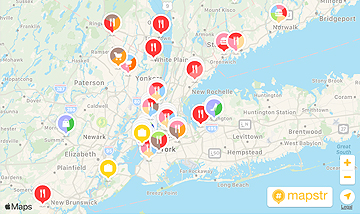Official speeches and statements - October 25, 2016
1. Migration - United Kingdom - Dismantling of the «Calais Jungle» - Statement by M. Bernard Cazeneuve, Minister of the Interior (Paris - October 24, 2016)
Ladies and gentlemen,
On the evening of the first day of the Calais camp’s dismantling, and after I’ve just left a meeting of the coordination and monitoring unit set up right here at the Interior Ministry, Emmanuelle Cosse and I would like to give you an update on the situation and reiterate the principles guiding the government’s action in this operation, in which we’re all playing an active role.
This evening 2,318 migrants have been provided with shelter: 1,918 adults have left Calais on board 45 buses to go to 80 reception and guidance centers [CAOs] situated in 11 regions of France, and 400 minors have received guidance and have also been given shelter at the temporary reception centre [CAP] pending examination of their cases, joining the 200 who were already there. Six hundred unaccompanied minors are now safe at the CAP. So an initial step has been taken today; it went ahead in a calm and controlled manner, and we must of course continue.
I’m giving this information, and we’ll continue to give it in the coming days, because we’re conducting this operation openly, with a desire for transparency.
Not only under the gaze of the press, which is natural, but also in the presence of the voluntary organizations that are working on the ground, representatives of the Office of the United Nations High Commissioner for Refugees, and representatives of the Ombudsman, the Controller-General for Places of Deprivation of Liberty and many organizations like Amnesty International and Human Rights Watch. It’s natural that French people should know exactly what we’re doing: what the government is doing in Calais - which is going to last as many days as necessary - is quite simply its duty as a country committed to the right of asylum.
This is, first of all, its humanitarian duty. We’d like to shelter all the people who were still in the camp today, the vast majority of whom have fled war and persecution.
The conditions in which they were living in the camp were humiliating and couldn’t continue. That’s why, a whole year ago now, we offered guidance at CAOs to those migrants who wanted it. Six thousand of them were thus able to leave Calais and go to one of the 167 reception and guidance centres we created throughout France. From today until the dismantling is over, 6,500 migrants will do the same.
To this end, we’ve created 283 additional CAOs since the summer, bringing their total number nationally to 450. These CAOs represent a temporary stage - I emphasize this point - lasting a few months along the path taken by the migrants, after which they will, in most cases, lodge asylum applications and then gain refugee status and hence the normal and decent lives to which they legitimately aspire.
This policy of humanitarian shelter - which reflects France’s values, what it is deep down and its international commitments - is accompanied by its absolutely essential corollary, namely absolute firmness with regard to illegal immigration. Since the beginning of the year 1,789 irregular migrants have been deported from the country from Calais.
Moreover, also since the beginning of the year, 33 illegal immigration rings smuggling people into the UK have been dismantled - 20% more than last year. Finally, I stress that 47,000 people have been turned back from entering the country since our border controls were restored on 13 November 2015.
What the government is doing in Calais is also its duty to a town, Calais, a region, its inhabitants, its elected representatives and its economic and social players, who for more than 15 years have borne on their shoulders - often alone - the burden of the international migration crisis’s effects in our country. They’ve done so bravely, generously, patiently. This situation couldn’t continue either.
As the French President repeated in Calais on 26 September, national solidarity must come into play. We owe it to the people of Calais: they too have a right to a normal, peaceful life geared towards economic development and the future.
We also owe it to the security forces, who have been working on the ground for months and months and who, with a professionalism that commands admiration, have been facing tense situations every night around the Rocade [approach road to the port]. Those security forces will also stay as long as necessary to secure the border and prevent new camps being formed in Calais or along the coast. I want to be extremely clear on this point: there’s the dismantling but also the post-dismantling period. The security forces present will carry out checks, particularly at train stations, to ensure that camps aren’t rebuilt in Calais or along the north coast.
So we’re organizing this necessary national solidarity, with these 450 additional CAOs distributed throughout the country. The vast majority of mayors are on board; it’s a credit to them, and I want to thank them very much for it. We’ve seen that the CAOs set up a year ago are working well, without any incidents involving the inhabitants of the communes concerned.
I and my colleague Emmanuelle Cosse, Minister of Housing and Sustainable Homes, also want to thank the préfets [high-ranking civil servants representing the state at departmental or regional level], those discreet and admirable servants of the state, who not only have managed in record time to make available CAO places which are necessary for accommodating migrants in the departments but are also conducting the necessary dialogue with the mayors.
Finally, I want to pay tribute and send a message of gratitude and encouragement to all the teams on the ground in Calais, who have been preparing this dismantling operation in great detail for weeks and are implementing it today: the Pas-de-Calais préfète, Fabienne Buccio, and her colleagues, as well as the teams from the DGEF [General Directorate for Foreigners in France] led by Pierre-Antoine Molina, the OFPRA [French Office for the Protection of Refugees and Stateless Persons] led by Pascal Brice and the OFII [French Office for Immigration and Integration] led by Didier Leschi. I want to thank the dedicated police and gendarmes present for guaranteeing the safety of the operation, and all the staff, permanent or from voluntary organizations, who have been working for months with the migrants to assist them.
This operation is a painstaking job, unprecedented in scale. I’ve noted throughout the day that everyone has been at their post, in position, and that this has so far allowed us to proceed calmly, keeping the operation under control. We are fully aware of the risks and difficulties which could emerge in the next few days, and that’s why we are going to remain utterly mobilized and focused on the next part of the operations.
I also want to thank the British authorities, with whom we have been engaging, for two years now, in an ongoing, friendly, frank and, above all, fruitful dialogue, always imbued with a sense of our countries’ shared responsibility.
Let me remind you that for two years, our negotiations with the British have made it possible to elicit substantial efforts from London, which show that when it comes to managing this situation, responsibility is fully shared between our two governments. The British authorities’ increased commitment in Calais took the form, among other things, of greater cooperation between our border police services in the fight against illegal immigration networks, and also the payment of euro100 million, which has contributed chiefly to the work necessary to make the border impenetrable at Calais in the tunnel, at the port and around the Rocade.
As you know, over the past few weeks these negotiations have been further intensified with my British counterpart, Amber Rudd, who took over from Theresa May, now Prime Minister. These negotiations focused on two essential points: a request from us for further financial contributions to help in particular towards the dismantling costs, and the UK taking in all unaccompanied minors in Calais with ties to the UK, in full compliance with the agreements reached between our two countries in Amiens in March.
I am in a position to announce to you this evening that we have reached an agreement on those two points. Firstly, further financial assistance of more than euro40 million for Calais will be provided by the British.
Secondly, the UK will indeed take in all unaccompanied minors present in Calais whose family ties to Britain have been established, and it will even go further, since the British authorities have also pledged to look at cases of unaccompanied minors with no family links but whose best interests would be served by going to that country. Since the Amiens agreement, nearly 300 minors have already crossed the Channel, including 200 last week. Others will follow in the coming days and weeks.
I welcome the agreement, for which I again thank the British authorities. This cooperation is of course going to continue.
After this first day, I once again thank all those who are committed to this humanitarian operation.
Thank you.















